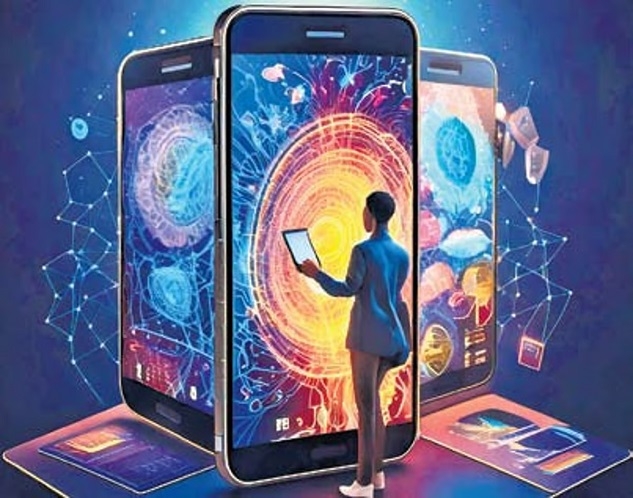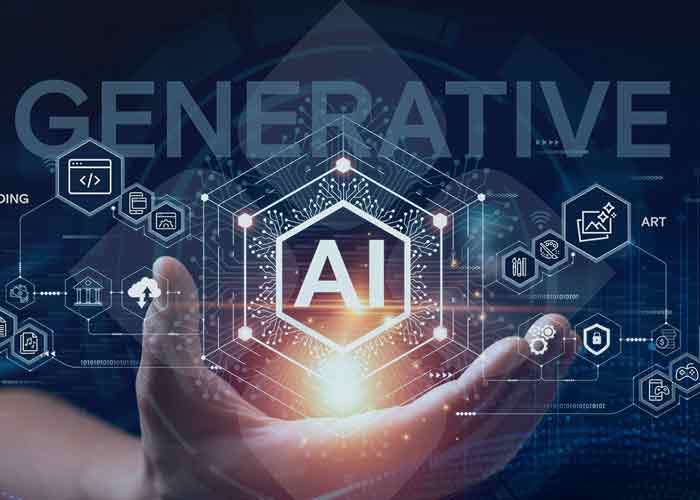GenAI-Ready Smartphones: The Future of Entertainment, Creativity, and Personalized Experiences

According to reports from the International Data Corporation (IDC) and Canalys, GenAI-enabled smartphones could account for up to 70% of global smartphone shipments, dramatically reshaping the technology landscape. This shift is set to not only impact consumers but also revolutionize the entertainment industry and provide artists and creators with tools that were previously unimaginable.
What Are GenAI-Ready Smartphones?
Impact on Entertainment and Content Creation

The entertainment industry will be one of the biggest beneficiaries of GenAI technology, transforming how content is created, delivered, and personalized. Here’s how GenAI-ready smartphones will impact various aspects of entertainment:
Enhanced Content Creation
With GenAI capabilities, artists, musicians, and creators will have access to sophisticated AI-driven applications that facilitate content production. Musicians, for instance, can use AI to generate beats, compose melodies, or even create lyrics tailored to specific genres or moods. This democratization of content creation levels the playing field, allowing emerging artists to produce professional-quality work without needing extensive resources.
Personalized Entertainment Experiences
AI’s ability to analyze user preferences will enable streaming services and other platforms to provide highly customized content recommendations. Users can receive personalized suggestions for movies, shows, or music that align with their tastes, ultimately enhancing engagement and satisfaction. This shift not only improves user experience but also helps entertainment platforms retain subscribers by delivering tailored content.
Interactive Storytelling and Immersive Media
GenAI-ready smartphones will open up possibilities for interactive storytelling, especially in gaming and digital media. Users will be able to engage in stories where the plot adapts dynamically to their choices, creating a unique and immersive experience each time. This capability could also extend to educational and virtual reality experiences, making GenAI a transformative force in content interaction.
Rise of Virtual Influencers
Virtual influencers—AI-generated characters that interact with audiences online—are already gaining traction, and with GenAI smartphones, their presence is expected to grow. Brands and marketers will be able to create lifelike digital personas that engage audiences in ways that feel both authentic and interactive, further blurring the line between the digital and physical worlds. Virtual influencers may also offer a unique way for companies to represent their brands and values, catering to a tech-savvy audience.
Augmented Reality (AR) Integration
GenAI and augmented reality (AR) combined will create new, enhanced experiences, particularly in live events and performances. For example, concerts could use real-time AR effects that respond to crowd reactions or adapt based on the performers' movements. Such innovations could redefine live entertainment, making events more interactive and memorable for audiences.
Empowering Artists and Creators with GenAI
The GenAI revolution will empower a new generation of artists and creators by making advanced tools more accessible and streamlining their creative processes. Here are some of the transformative effects GenAI will have on creative professionals:
Accessibility to Professional Tools
By integrating GenAI into everyday devices, creators from all backgrounds will have access to cutting-edge AI tools, fostering diversity and innovation in the creative landscape. This accessibility breaks down traditional barriers, enabling voices from underrepresented communities to share their unique perspectives and talents with the world.
Streamlined and Automated Workflows
Generative AI can handle repetitive tasks—like video editing, social media curation, or administrative tasks—allowing artists to focus on the creative aspects of their work. This enhanced productivity not only saves time but also reduces the cost associated with content creation, particularly for smaller creators or independent artists.
Global Collaboration
GenAI smartphones facilitate remote collaboration by enabling artists to co-create across different regions. Musicians can produce songs with producers from around the world, and visual artists can work together on shared digital platforms, creating art that reflects a global perspective. This cross-border collaboration fosters a rich exchange of ideas and styles, enriching the creative process.
Data-Driven Audience Insights
AI-powered analytics on GenAI smartphones provide creators with valuable insights into audience engagement, helping them tailor content to their followers' preferences. With this data, artists can refine their creative strategies to connect more effectively with their target audience, maximizing their reach and impact.
Ethical Considerations in the GenAI Era
While the potential of GenAI smartphones is vast, industry stakeholders must address ethical considerations. As GenAI gains traction, issues such as privacy, data security, and responsible AI use become crucial. Ensuring that AI tools are used in ways that respect cultural sensitivities and individual rights will be essential for fostering innovation without compromising ethical standards.
Conclusion: A Future Powered by GenAI-Ready Smartphones
By 2028, GenAI-ready smartphones are poised to reshape the digital landscape, driving innovation across entertainment, content creation, and personalization. These advancements promise to empower artists and creators while offering consumers new ways to engage with content. As we approach this exciting future, it is essential to approach GenAI with responsibility, ensuring that its benefits are harnessed ethically and inclusively.
GenAI technology represents not only a leap forward in smartphone capability but also an invitation to imagine a future where creativity and technology intersect in unprecedented ways. As this transformation unfolds, it is clear that the GenAI-ready smartphone will be a cornerstone of the next generation of digital experiences, expanding possibilities for both creators and audiences alike.



0 Comments